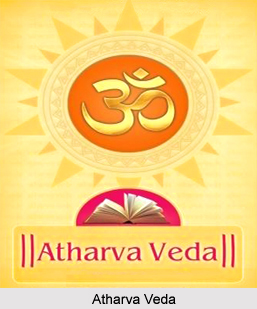 Chapters of Atharva Veda are full of magical songs. They are mostly compositions of different kinds of spells for a number of different purposes ranging from happiness to death and dark spells. These spells are addressed to both the Gods as well as the demons of the netherworld. Thus on the one hand there are chapters where the poet is seen dealing with the great gods of the sky, who embody the mighty phenomena of Nature. The Singer glorifies and praises them, makes sacrifices to them and prays to these strong, helpful and lofty beings, most of them the friendly Gods of life. On the other hand there are a number of verses which are addressed to dark and demonic powers which bring disease and misfortune upon mankind. These are ghostly beings, against whom the wizard hurls his wild curses, or whom he cries to soothe and banish by flattering speeches.
Chapters of Atharva Veda are full of magical songs. They are mostly compositions of different kinds of spells for a number of different purposes ranging from happiness to death and dark spells. These spells are addressed to both the Gods as well as the demons of the netherworld. Thus on the one hand there are chapters where the poet is seen dealing with the great gods of the sky, who embody the mighty phenomena of Nature. The Singer glorifies and praises them, makes sacrifices to them and prays to these strong, helpful and lofty beings, most of them the friendly Gods of life. On the other hand there are a number of verses which are addressed to dark and demonic powers which bring disease and misfortune upon mankind. These are ghostly beings, against whom the wizard hurls his wild curses, or whom he cries to soothe and banish by flattering speeches.
Indeed, many of these magic songs, like the magic rites pertaining to them, belong to a sphere of conceptions which, spread over the whole earth, ever recur with the most surprising similarity in the most varying peoples of all countries. Among the Indians of North America, among the races of Africa, among the Malays and Mongols, among the ancient Greeks and Romans, and frequently still among the peasantry of present-day Europe, we find again exactly the same views, exactly the same strange leaps of thought in the magic songs and magic rites, as have come down to us in the Atharva Veda of the ancient Indians, There are, then, numerous verses in the Atharva Veda, which, according to their character and often also their contents, differ just as little from the magic formulas of the American-Indian medicine-men and Tartar Shamans, as from the Merseburg magic maxims, which belong to the sparse remains of the oldest German poetry.
The great importance of the Atharva Veda Samhita, lies in the very fact that it is an invaluable source of knowledge of the real popular belief as yet uninfluenced by the priestly religion, of the faith in countless spirits, imps, ghosts, and demons of every kind, and of the witchcraft, so eminently important for ethnology and for the history of religion.













